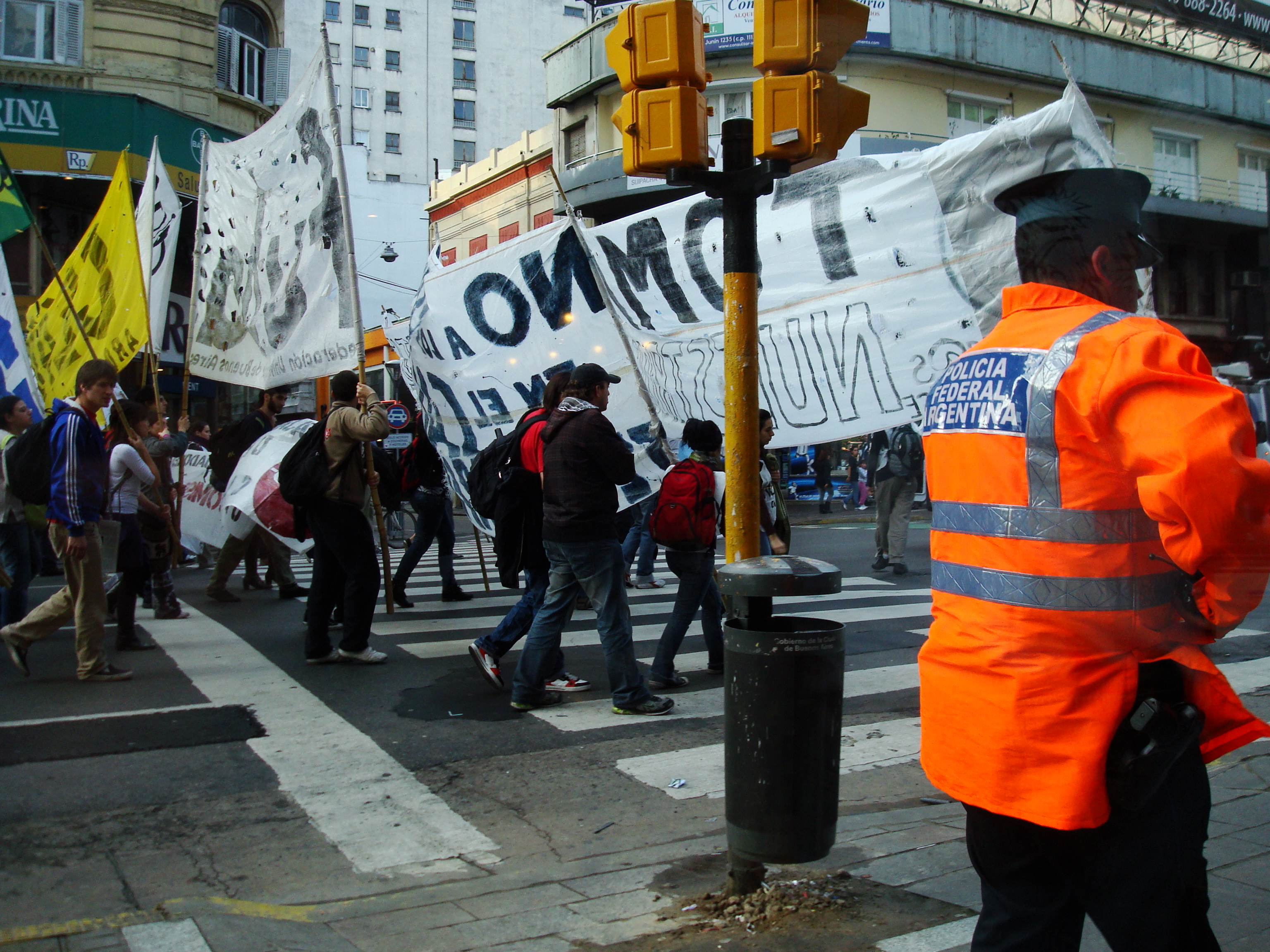Argentina is a very political country. This becomes apparent as you see campaign signs plastered one on top of another on every street and hear the commotion of the frequent protests in the center of Buenos Aires, but it characterizes the society on a deeper, less sensational level as well. As a political science major, I was excited to come here and learn about the politics in the midst of a presidential election season. And while what I have been able to clue into and learn about has been fascinating, I have barely been able to scratch the surface of the intricate political system. With myriad parties that each have a nuanced place within the workings of the political apparatus, it proves a great challenge to try to remember what each one stands for, their candidates and representatives, and how they all function together. I have been deeply impressed by the level of knowledge that Argentines exhibit of their politics, past and present, as well as the genuine eloquence with which they can express their opinions on such matters. More than once I have felt a bit embarrassed of my relative knowledge about certain American political debates or have made mental notes to brush up on my presidents.

But due to the complex nature of Argentina’s political atmosphere, it would be impossible to even begin do it justice here. However, one aspect that has also made a great impression on me has been the politicization of the university students. My study abroad program gives us the choice of taking classes at four different Argentine universities, and I am currently studying at the University of Buenos Aires, the only public university of the group. Thus I cannot speak for the private universities, but my impression is that they are not quite so active. And “active” is an understatement to describe the student body at UBA. When you walk into the Facultad de Ciencias Sociales, a non-descript building in a potentially seedy neighborhood with a man selling sandwiches and a range of school supplies in front, you are greeted by a sensory overload. Hundreds of students mill about, talking and drinking coffee or smoking cigarettes that they nonchalantly put out on the floor. What completes the scene is the haphazard collage of posters that cover practically every empty space on the walls, and when there is a lack of space, propped up against chairs or railings. These hand-painted, no-frills posters advertise events like rallies and conferences, promote candidates, or just make general political statements calling students to take a stand.
Once you navigate your way through all this and settle into your classroom, more awaits. In the four or so hours that I am in class each week, we are interrupted about five times by representatives of different student groups. It is usually a guy and a girl, who politely ask the teacher if they can make an announcement, even in the middle of his sentence. The students, who come from groups such as La Frente Izquierda, Contra Hegemonía, and La Juntada de la Izquierda Independiente, all start with, “Hola, compañeros…” and then launch into a quick but thorough overview of their current activities and campaigns. They pass out flyers, publications, and sign-up sheets. As in the political system as a whole, it can be difficult to keep track of what each group stands for, but the one thing for sure is that they are passionate and vocal.
Back at UMass, I work with MassPIRG, a non-partisan public advocacy group that runs campaigns on social issues that are of interest to the students. For the 2010 election, we worked with other groups on campus, such as the University Democrats and the Center for Education Policy & Advocacy, to register students to vote and urge them to educate themselves on the candidates and issues. While we all had our own strong opinions, we were very careful to stay completely neutral during the voting drive. Here, neutral isn’t an option. Perhaps it has something to do with the fact that voting is obligatory in Argentina, but there is strong support and strong opposition when it comes to elections. Debates are fast-paced and heated, everyone has an opinion, and you are constantly bombarded with information, propaganda, or slander. Though it is hard to crack, the political life in Argentina is indeed captivating, and its great presence in the culture refreshing.
Application for GILMAN and GILMAN-MCCAIN ends in {day} Days : {hour} Hours : {min} Min: {sec} Sec
A. Gilman Blog
Footer
Contact Information:
Applicants & Current Recipients
Scholars Abroad & Alumni
Advisors
General Inquiries
The Benjamin A. Gilman International Scholarship Program is a program of the U.S. Department of State with funding provided by the U.S. Government and supported in its implementation by the Institute of International Education (IIE).
Copyright 2023 Benjamin A. Gilman International Scholarship Program. All Rights Reserved



